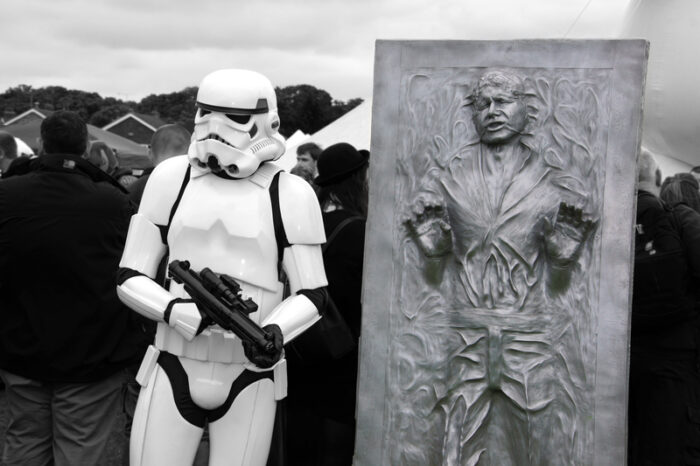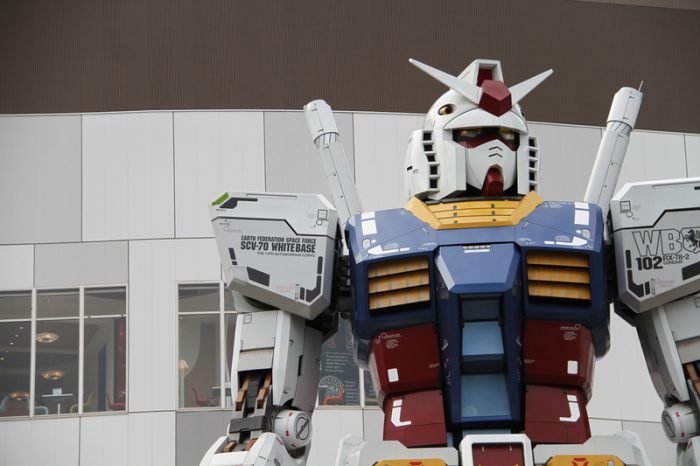What is the biggest piece of art that you can think of?
Is it a painting the size of a wall? Or maybe a giant sculpture? Could it be the Statue of Liberty? Does the Eiffel Tower get to be called art? (Probably not, because it is home to restaurants and communication towers, though it is still beautiful to look at!)
The more that you think about it, the harder that question is to answer. But on Friday, September 2, one of the biggest pieces of art ever made is opening to the public. How big is it? Well, it's called City, so that's a clue!
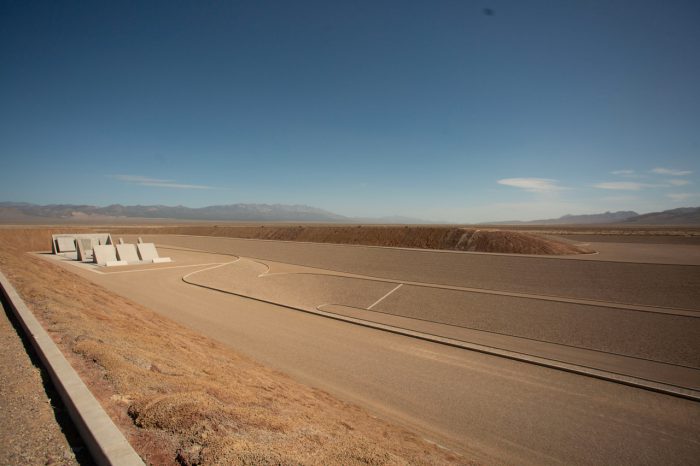
Another view of 45°, 90°, 180°, a section of City. (© Michael Heizer / Courtesy of the Triple Aught Foundation / Photo by Joe Rome)
At about 2.4 km (1.5 miles) long and nearly 1.5 km (1 mile) wide, City is about the size of the National Mall in Washington, DC. (Found between the Washington Monument and the U.S. Capitol Buildings, the Mall is home to dozens of museums and art galleries.)
The National Mall is the area between the Capitol Building (foreground) and the tall Washington Monument (background). (Getty Embed)
But despite its name, City is not a place where anyone lives. It is a series of mounds and paths that wind around enormous concrete structures. This huge artwork is found in a remote part of the Nevada Desert a few hours outside of the actual city of Las Vegas. It has no street lights and no nearby hotels, and only six visitors will be allowed to visit it each day.
Who designed it? How long did it take to build? Why is it there? Let's find out.
A life's work
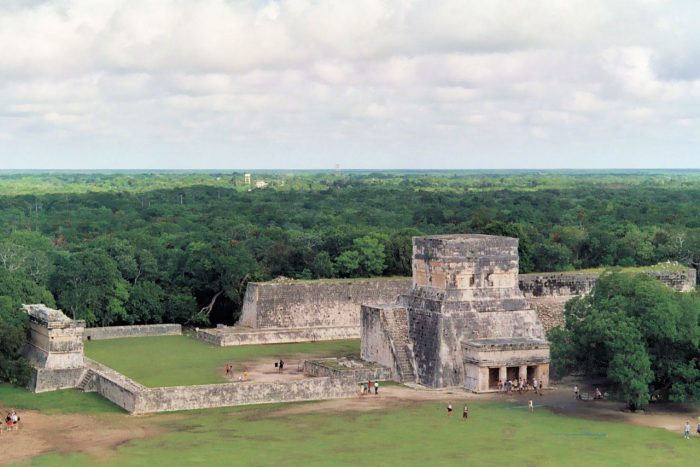
The artist, Michael Heizer, was inspired by the Mayan ruins of Chichen Itza. (Wikimedia Commons)
The artist who designed City is a man named Michael Heizer. Today, he is a 77-year-old man. But in 1972, he was an excited 27-year-old artist living in New York City.
New York has long been a home to experimental artists who have pushed the limits of painting, photography, sculpture, and film. But Heizer had a truly mammoth idea for his newest art project.
After visiting the famous ruins of the Mayan city of Chichen Itza in Mexico, he wanted to create something that was the same size of spectacle. So he found a wide open desert space called the Garden Valley in Nevada and started building.
Little did he know that it would take 50 years (as well as lots of heavy machinery and generous donations) for him to finish it!
What do YOU think it is?
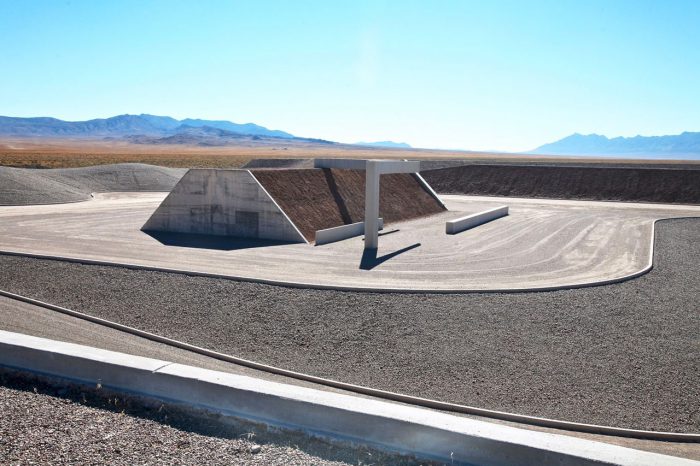
City is actually found in the middle of a nationally protected area called Basin and Range National Monument. (© Michael Heizer / Courtesy of the Triple Aught Foundation / Photo by Mary Converse)
And now that it is done, what exactly is City supposed to be about?
"I am not here to tell people what it all means," Heizer said in an interview with the New York Times. "You can figure it out for yourself."
Okay, well, that doesn't help! Or maybe it does ...?
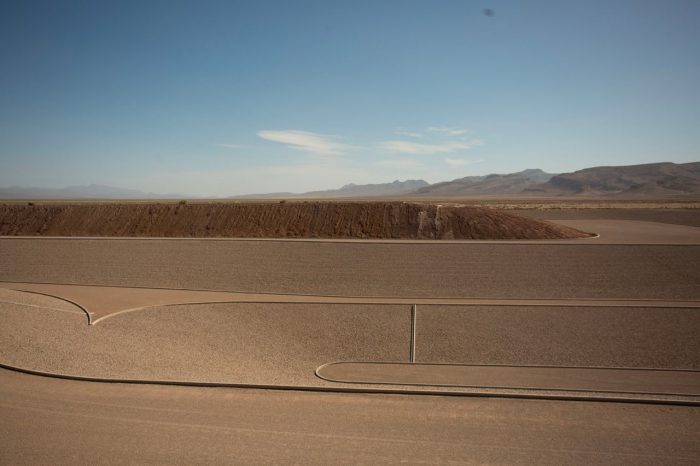
Does this make you think of a race track? (© Michael Heizer / Courtesy of the Triple Aught Foundation / Photo by Joe Rome)
One of the great things about huge ruins and buildings like Chichen Itza or the Great Pyramids is that you don't need to know all of their history to be impressed by them. These massive structures are things that demand your attention and spark your imagination just by being there.
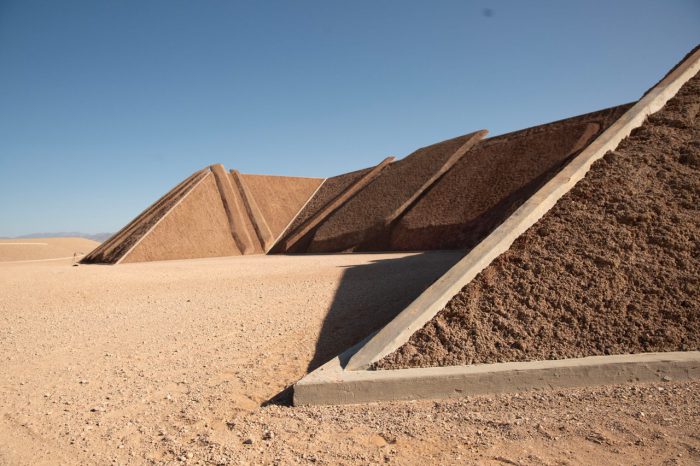
Ready to receive transmissions from a galaxy far away? (© Michael Heizer / Courtesy of the Triple Aught Foundation / Photo by Joe Rome)
What do you see when you look at pictures of City? Sometimes, we see a race track on the Moon. Other times, we see a monument left behind by an advanced alien species. And then, sometimes, we see something that looks like a construction site in progress. Like a new stadium that is being built.
What might future civilizations think of City? Will they see it as art? Or as ruins that are actually very similar to Chichen Itza?
Art is a curious thing, isn't it?
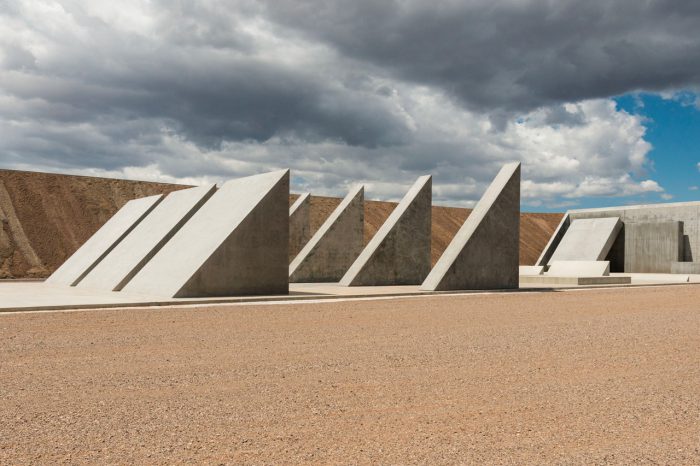 One of the many sections of City. This area is called 45°, 90°, 180°. (© Michael Heizer / Courtesy of the Triple Aught Foundation / Photo by Ben Blackwell)
One of the many sections of City. This area is called 45°, 90°, 180°. (© Michael Heizer / Courtesy of the Triple Aught Foundation / Photo by Ben Blackwell)

